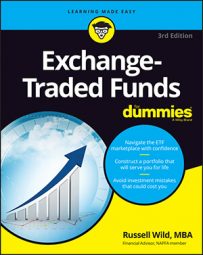There are circumstances where it makes sense to trade ETFs rather than buy and hold. For example, you need to rebalance your portfolio, typically on an annual basis, to keep risk in check
Few investors walked away from 2008 smelling like a rose. But those who were slammed, truly slammed, were those who had more on the stock side of their portfolios than they should have. It happens, and it happens especially after bull markets, such as we saw in the several years prior to 2008.
Let’s take the case of Samantha. In 2003, when she was 50 years old, she sat down and looked at her financial situation and goals. She determined that she warranted a 60/40 (60 percent stock/40 percent bond) portfolio and duly crafted a darned good one.
But then she got lazy. She held that portfolio without touching it through the stock market boom years of 2003 through 2007. As a result, her portfolio morphed from a 60/40 mix to a 70/30 mix by the start of 2008.
Uh oh.
In other words, just when the market tanked, just when she could have really used the ballast that bonds provide, her lopsided portfolio, due to neglect, was primed for disaster.
The stock market fell by about 37 percent, and her 70 percent stock portfolio fell by about a quarter. That’s a big fall. And to add insult to injury, just when stocks hit rock bottom, she had no “dry powder” (cash) with which to reload her stock portfolio.
It is in large part to prevent such big falls, and lack of “dry powder,” that you need to rebalance. That is, on a regular basis, you need to do exactly the opposite of what most investors do: You need to sell off some of your winners and buy up the losers.
By doing so, not only do you cap your risk, but studies show that you will juice your returns. By systematically buying low and selling high, you may, over the long run, increase your average annual returns by as much as 1.5 percent. That’s not a bad return at all for an exercise that shouldn’t take you more than a couple hours!

